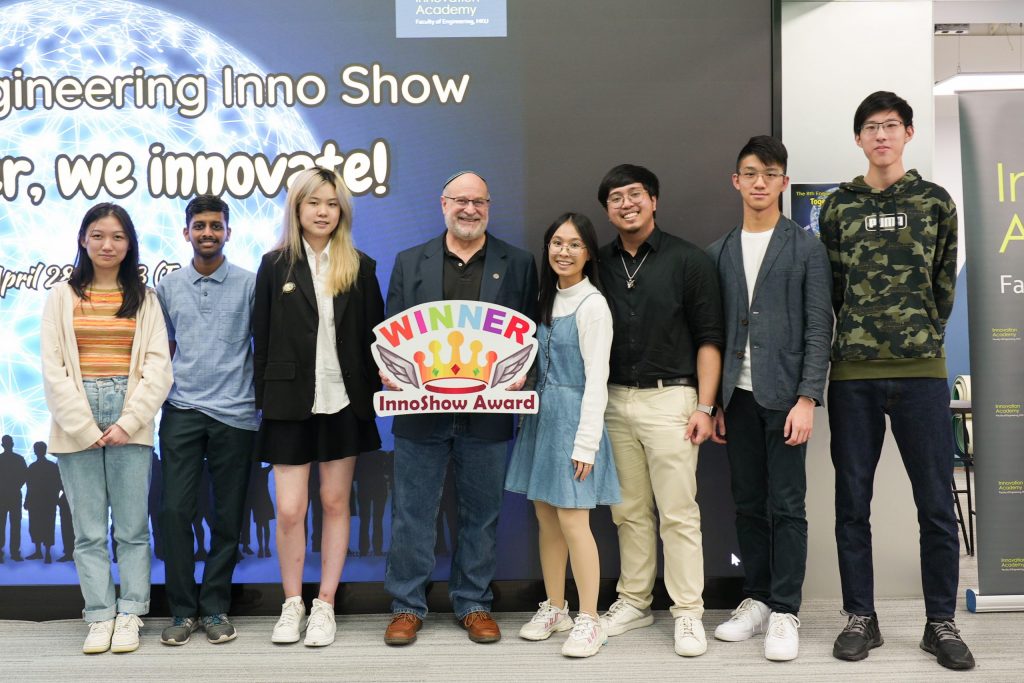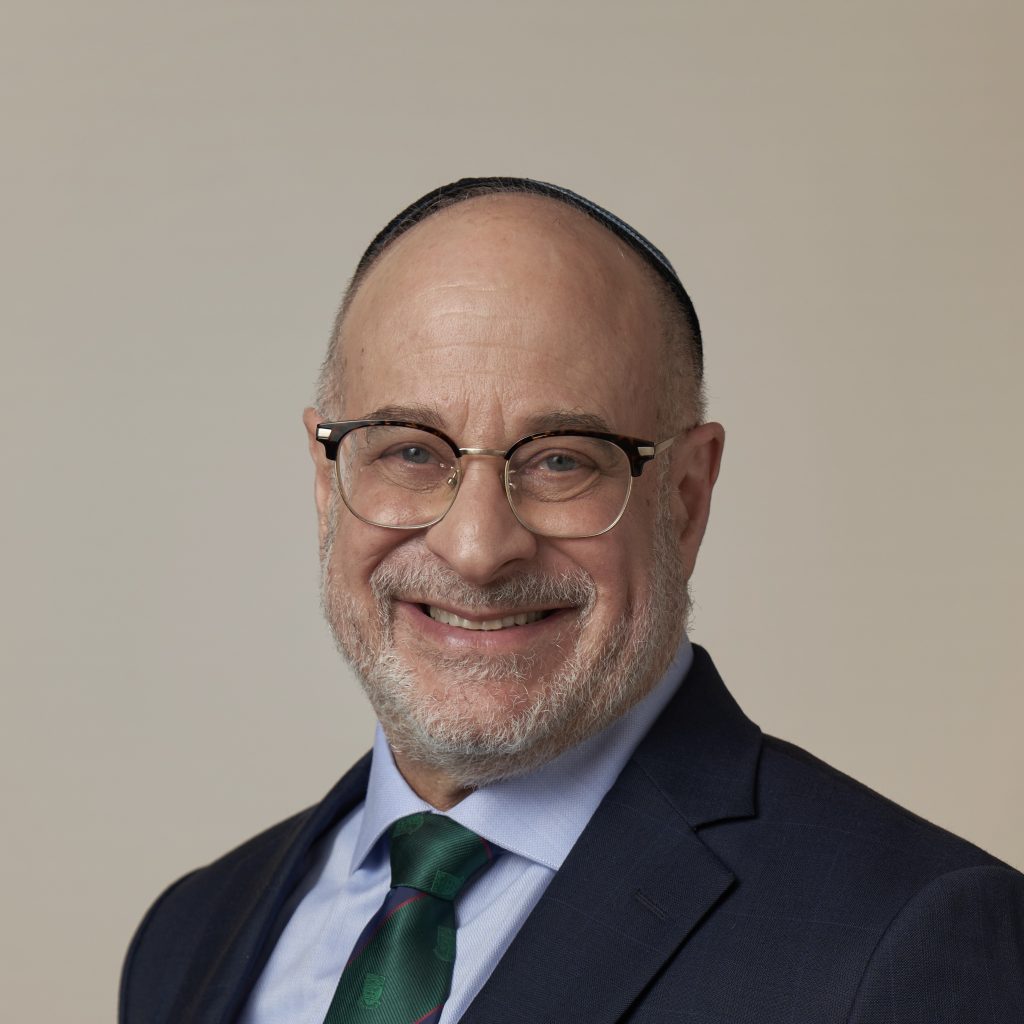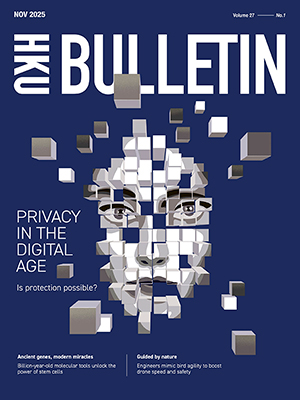May 2024 | Volume 25 No. 2
Avoiding the Safe Option
Listen to this article:
Professor David Srolovitz tells his students there are two characteristics to the ideal job. One, you look forward to going to work on Monday. And two, you just need to make enough money not to worry about it. He could add a third: find some fun in what you do.
Professor Srolovitz himself has been adept at landing jobs that have enabled him to build both an outstanding record of academic excellence and a repertoire of amusing anecdotes, such as the fortune cookie that helped convince him to move to Asia, the professor whose reference letter told potential employers not to hire Professor Srolovitz because he wanted to do it first, and the administrators who respond promptly to his requests, begging him not to complain to their bosses.
“I would say that if you really want to be successful, you need ‘AI’ – you need to be annoyed and impatient,” he jokes.
It also helps to have the talent to be spoiled for choice and the wisdom to make good decisions.
Professor Srolovitz’s talents include materials science, mathematics, physics and philosophy (he minored in the latter as an undergraduate, where he enjoyed arguing with the professor). But he listened to good advice from a family friend just before he entered graduate school, switching from condensed matter physics to materials science because, as the friend pointed out, the latter gets better jobs. His success was evident when he received multiple offers from universities and corporate research laboratories at the postdoc level. He decided at the time that academia did not appeal (“I didn’t want to spend my career studying the freckle on the nose of a gnat.”) so he joined the private sector, first with Exxon Corporate Research then at Los Alamos National Laboratory.
Moving beyond safe harbours
But he was not over with academia. As he progressed in his career, he began to reconsider his initial assumption about academia. “I came to the conclusion that if I want to control what I do, being a professor may be the best way to do it.”
He was offered tenure at the University of Michigan and stayed for 12 years before joining Princeton as Chair Professor, choosing it over several other university offers for reasons that echoed in his decision to come to HKU in 2021 – he likes comprehensive universities with a sense of tradition. A highlight of his time at Princeton was co-authoring a Nature paper with a mathematician that solved a decades-old fundamental problem in the field.
Still, more choices arose. Professor Srolovitz had been spending two months a year with the Agency for Science, Technology and Research in Singapore and in 2009 they offered him a permanent post. “I said, what do you want me to do? And they had just the right answer: ‘What do you want to do?’” This is where the fortune cookie came in. Professor Srolovitz cracked it open when he was deciding whether to accept the offer. “These fortunes are usually so silly, but this one said, ‘A ship in harbour is safe, but that’s not what ships are for.’” So off he went to Singapore.
After three years, he moved back to the US to join his alma mater, the University of Pennsylvania. But Asia beckoned again. In 2018, the City University of Hong Kong recruited him to establish a new department of materials science. Then in September 2021, HKU recruited him as Chair Professor of Materials Theory. Professor Srolovitz was confirmed as dean in 2023.

Professor Srolovitz (fourth from left) at the 8th Engineering Inno Show, a showcase carnival of students’ inventive designs and projects.
A great future and a great ‘now’
The most important role of the dean, he says, is people – hiring and tenuring the best. While he acts cautiously on the latter, he takes risks on the former and advises young scholars to follow suit. “I always tell my research students, if you’re never wrong, it means you’re not trying hard enough. If you’re afraid to make mistakes, you won’t ever be able to hit on the next big thing,” he said.
One big successful risk has been his decision to double the intake in Engineering’s Master’s programmes and double tuition fees for non-local Master’s degree students. Paradoxically, applications have since increased. “The name of the university matters to people’s job prospects, so our reputation is worth quite a lot. Our challenge now is to live up to and exceed our reputation.”
That means beefing up not only teaching – particularly in attracting top students – but also research, where he supports a stronger focus on the fundamentals that underpin artificial intelligence, power electronics, materials and other technologies.
“With all the geopolitical turmoil, both Mainland China and Hong Kong are investing in developing technology to improve the economy for the long term. We need to get potential students and their parents to understand that technology development has a great future and a great ‘now’,” he said. It’s a no-brainer for Professor Srolovitz. “Engineers are enthusiastic to go to work on Mondays because they actually accomplish something real.”
The name of the university matters to people’s job prospects, so our reputation is worth quite a lot. Our challenge now is to live up to and exceed our reputation.

Professor David Srolovitz

